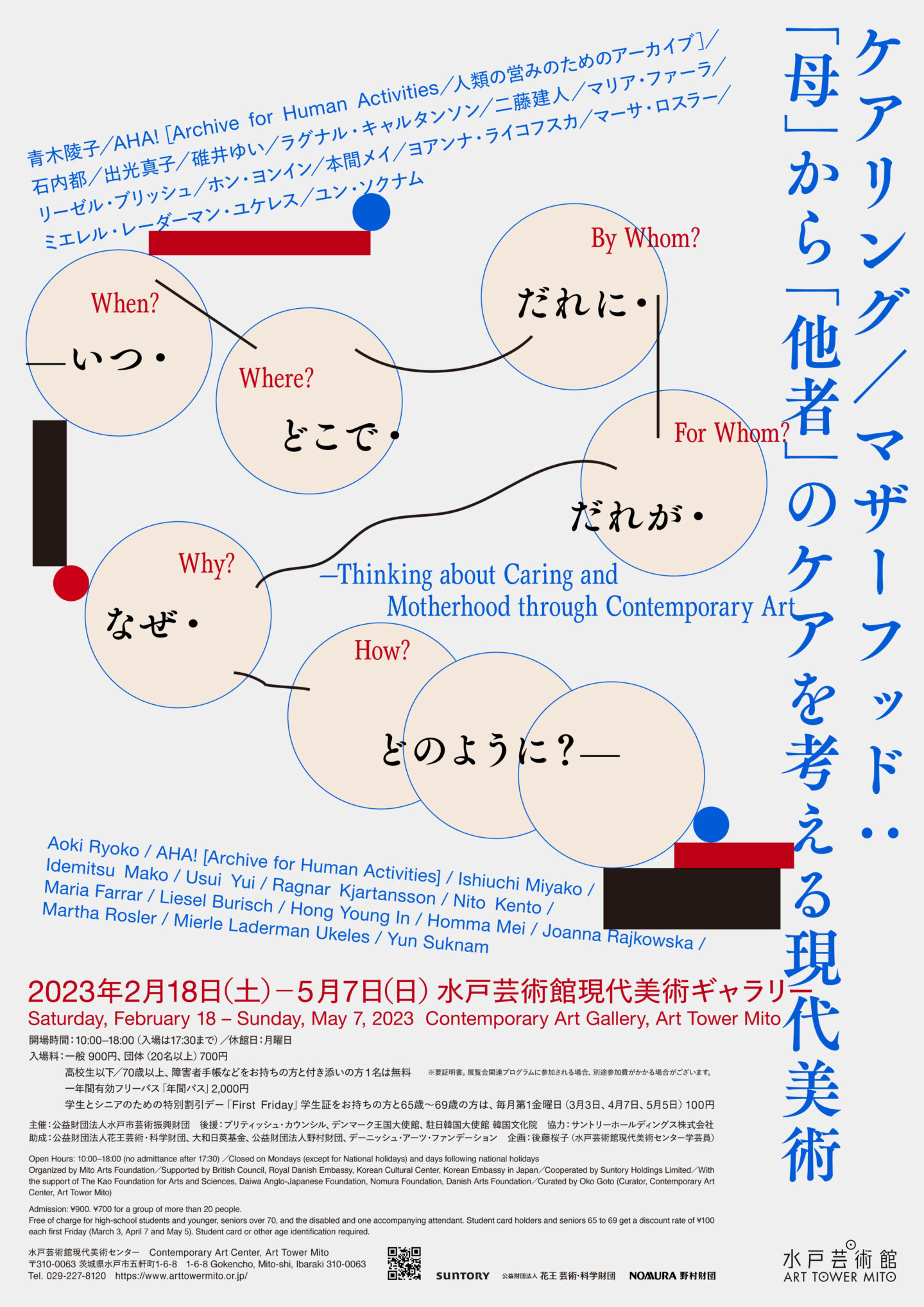When? Where? By Whom? For Whom? Why? How?
18 Feb - 7 May 2023,
Thinking about Caring and Motherhood through Contemporary Art
Contemporary Art Center, Art Tower Mito

People receive care in various phases within their lives and also face opportunities to become caregivers themselves. Care is indeed a concept that should be positioned at the core of society, as Eva Feder Kittay stated, no culture that endures beyond one generation can secure itself against the claims of human dependency. However, in the development of modern society that prioritizes rationalism and quantitative productivity, the practice of care (and the many women who serve as providers of it) has remained far too indiscernible and unobtrusive. Furthermore, biases against care tie women to their homes through the privatization of care work in tandem with the gendered division of labor in the modern family. Even today, when the industrial structure has undergone dramatic shifts and women’s social empowerment is promoted, it becomes a factor that imposes heavier and multiplied responsibilities to women, who are expected to juggle paid work, housework and care work. Added to which, in a society based on neoliberalism self- determination and self-responsibility are emphasized, and there is a growing tendency to make people responsible for their own care. In response to this situation, the artists observe contemporary society and listen to people’s voices, sometimes from the standpoint of those who participate in the practice of care.
The artists in this exhibition observe such situations of contemporary society, sometimes from the standpoint of those who participate in the practice of care. These artists’ works challenge the status quo and question the meaning of struggles within the ambivalence of self-other boundary in care work. The exhibition also aims to devise exhibition environments that are more welcoming and easily accessible to those visiting with the needs of care.
The exhibition will seek the possibilities of empowerment through works of contemporary artists and the placemaking that strengthens the connection between the public and care.
The curator of the exhibition, Oko Goto, has chosen “Basia (video, 16′) by Joanna Rajkowska.
Before she found herself at a nursing home, Joanna Rajkowska’s mother, who died in 2006, had gone through ‘the hell’ of the Dr. Józef Bednarz Provincial Hospital for the Nervously and Mentally Ill in Świecie, Poland. In response to an invitation to participate in the project Reawakening – Reactivation (Town of Świecie – a New View), Rajkowska made an attempt to work through the personal trauma related to the disease and death of her mother, Barbara.
Basia is a film documenting the artist’s several hours’ long walk around Świecie, during which, according to her own words, she ‘became her sick mother’. Thus, Barbara’s dream of escaping the hospital came true. Dressed in flannel pyjamas, in hospital slippers, grey-haired, clutching a black handbag with a hidden camera, Rajkowska wandered around the town. One of her crucial gestures was entering the river – a purifying gesture on the one hand, but suicidal on the other.
She would have continued her wandering had it not been for a woman who decided to help her. She stopped ‘Basia’, called the police and an ambulance. Deeply moved by the whole situation, she started to pray fervently for someone she perceived to be a sick woman. Taken for a hospital escapee, the artist was taken to the hospital admission room from where, however, she managed to flee.


